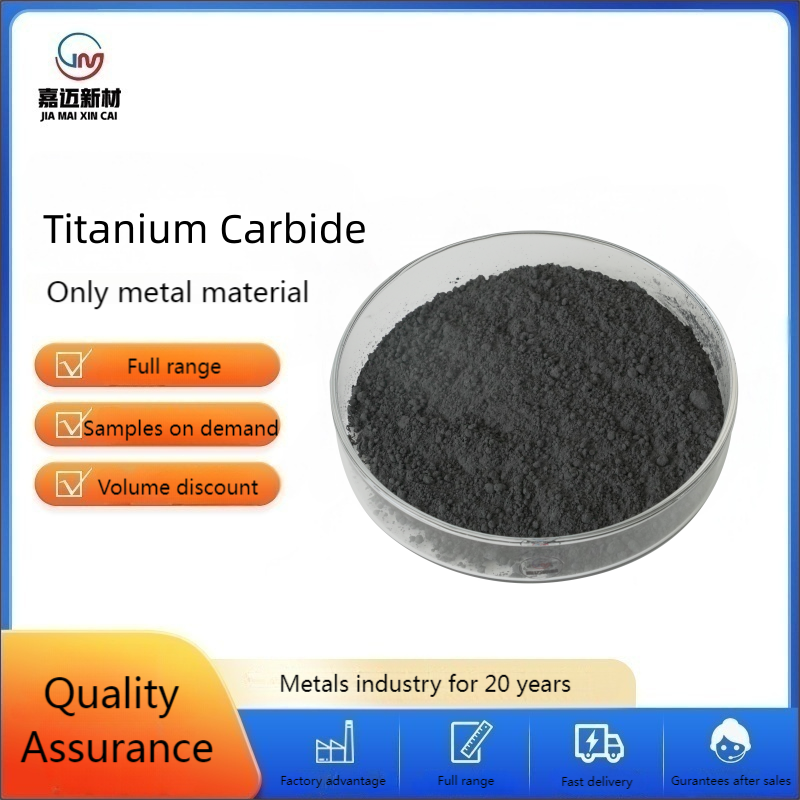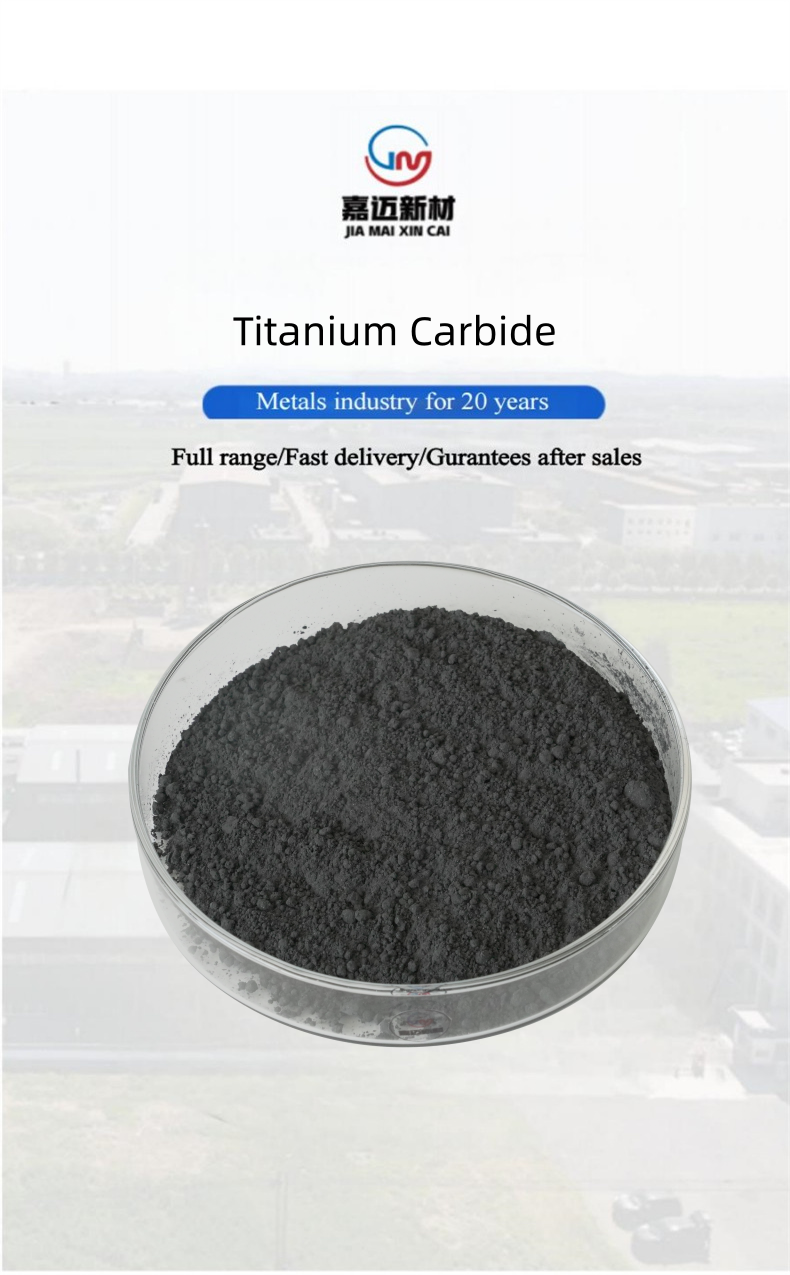
Product Name: Titanium Carbide (TiC)
Specification: 0.8-10um (D50)
Appearance: Irregular
Color: Black Grey
Features: high hardness, high melting point, wear resistance, good chemical stability, and good conductivity

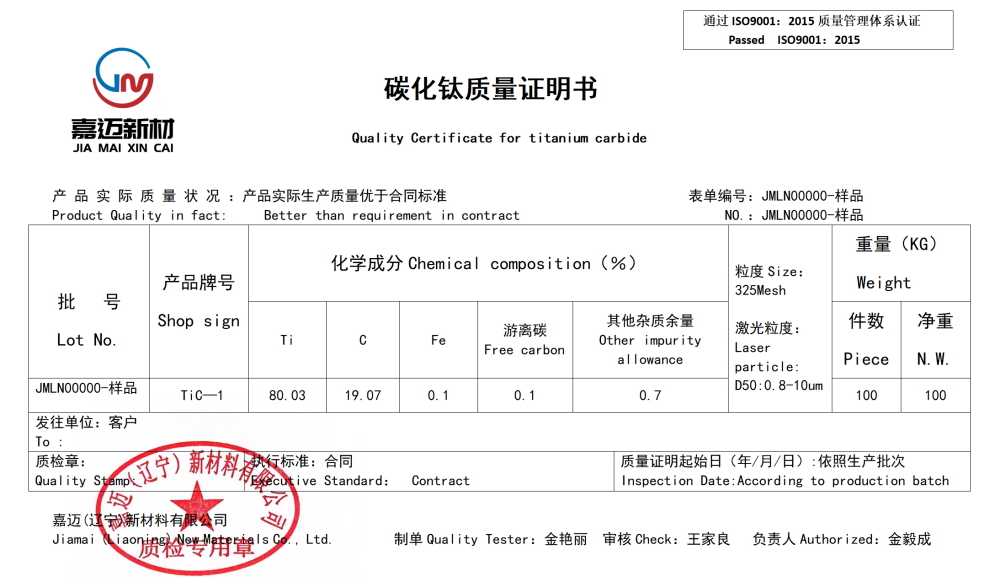

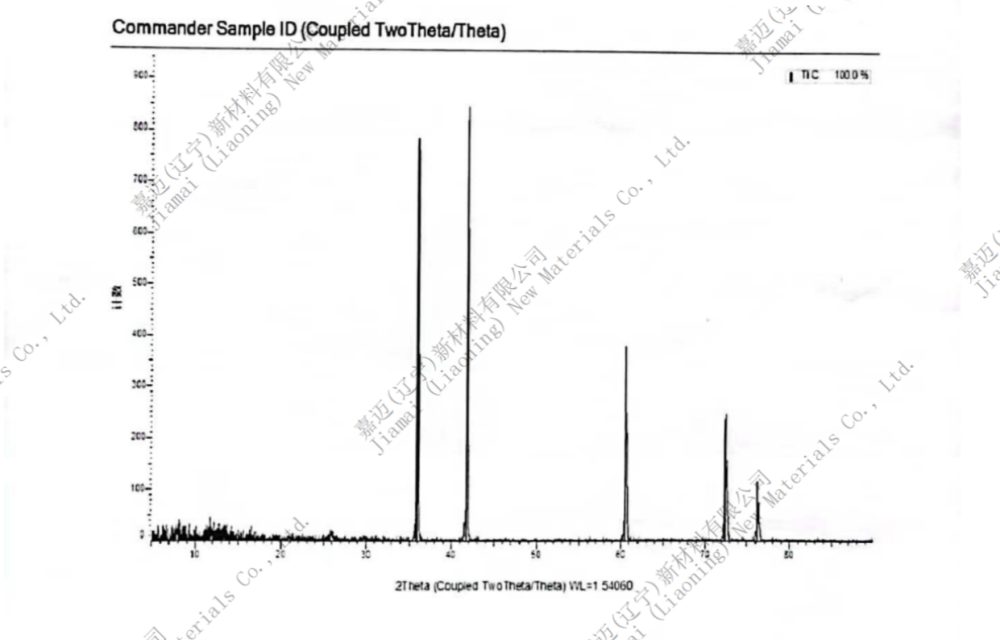

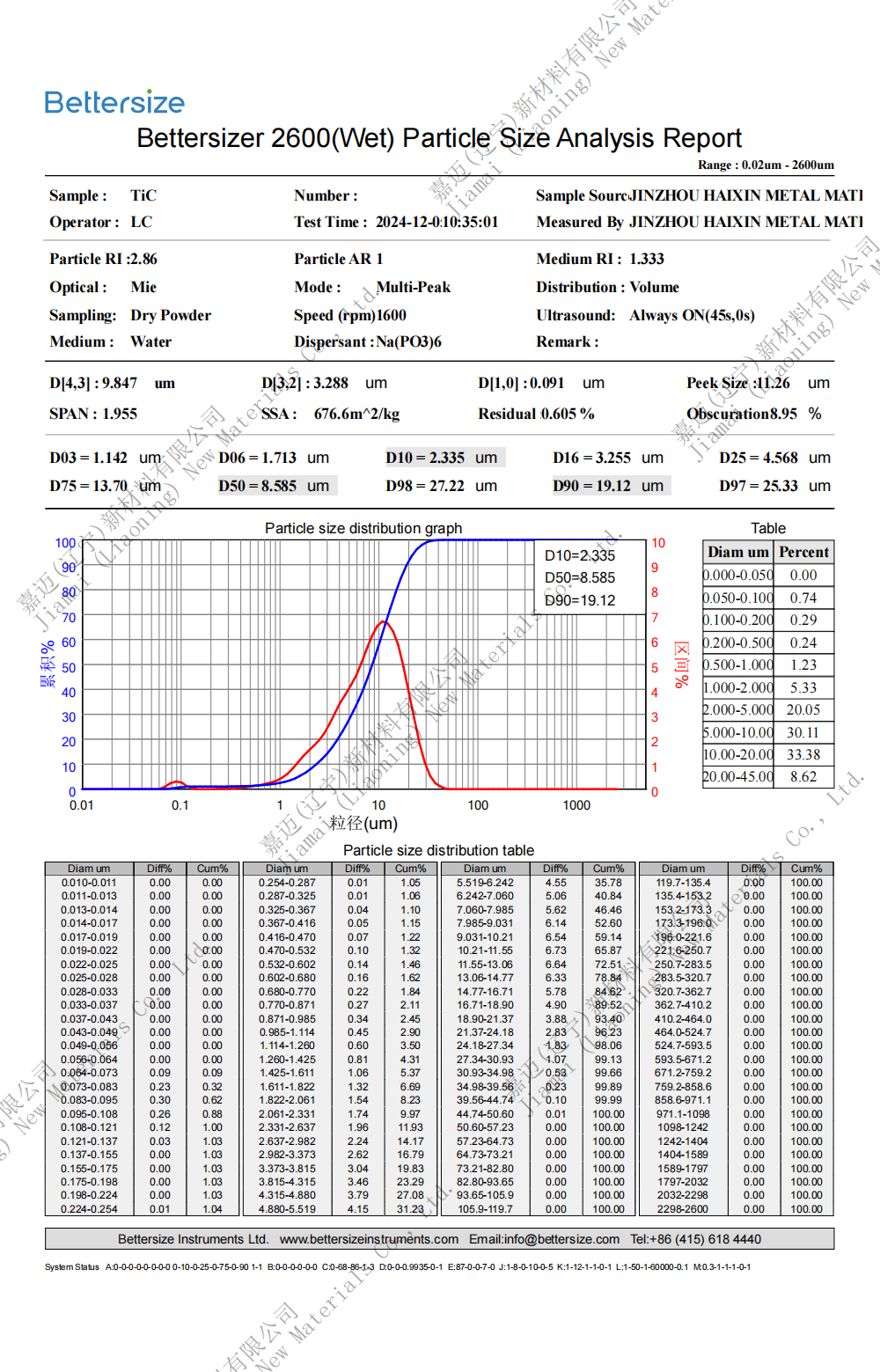
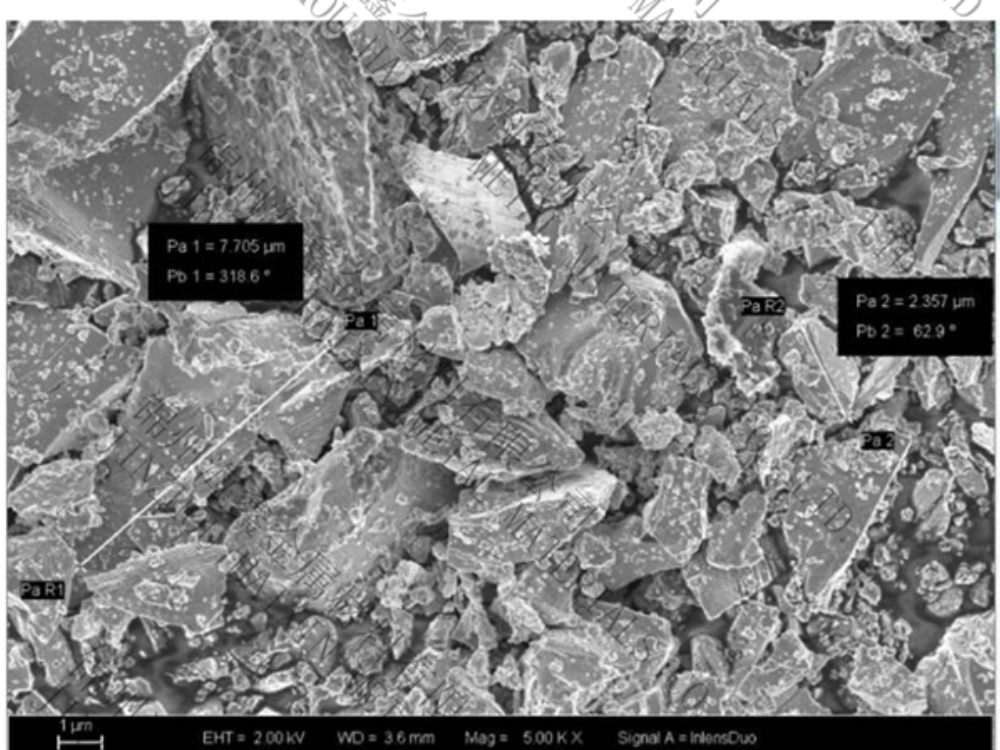

Titanium carbide
Molecular formula: TiC
CAS number: 12070-08-5
Crystal form: cubic crystal system
Relative density: 4.93
Melting point: 3140 ℃
Boiling point: 4820 ℃
Molecular weight: 59.89
Mohs hardness: 9-10,
Microhardness: 3000kg/mm2
Elastic modulus: 2940 N/mm2
Bending strength: 240-400 N/mm2
Thermal conductivity coefficient: 7.74 × 10-6/K
Thermal conductivity: 21 w/(m/K)
Heat of generation: 183.4 kJ/mol
Room temperature resistance: 60 μ Ω
Solubility: soluble in nitric acid and aqua regia, insoluble in water,. Stable to air below 800 ℃, susceptible to air erosion above 2000 ℃, and capable of reacting with pure O2 at 1150C.
Synthesis method:
1) Carbon thermal reduction method:
The mixture of titanium powder obtained by reducing TiO2 with hydrogen gas and carbon is reacted at high temperature, or the mixture of TiO2 and carbon powder is compressed into blocks, then heated to 2300-2700 ℃ in an electric furnace and carbonized in H2 or CO atmosphere to obtain
2) Direct carbonization method:
Generate TiC by reacting Ti powder and carbon powder. The chemical reaction equation is: Ti(s)+C(s)=TiC
Main purpose:
1. Hard alloy and cutting tools
Cutting tools: made of hard alloy combined with tungsten carbide (WC), used to manufacture turning tools, milling cutters, and drill bits, suitable for high-speed machining of high hardness materials (such as quenched steel).
Wear resistant components: used for manufacturing molds, bearings, and seals to enhance wear resistance and lifespan.
2. Composite material reinforcement phase
Metal based composite materials: added to metals such as aluminum and titanium to improve strength, hardness, and high temperature resistance, suitable for aerospace components.
Ceramic based composite materials: combined with alumina, silicon carbide, etc. to enhance toughness and thermal shock resistance, used in high-temperature environments.
3. Surface coating
Tool coating: TiC coating is formed on the surface of cutting tools and molds through CVD or PVD processes, significantly improving hardness and wear resistance.
Corrosion resistant coating: applied to chemical equipment or nuclear reactor components to enhance corrosion and radiation resistance.
4. Aerospace and High Temperature Applications
Engine components: used in high-temperature areas such as turbine blades and combustion chambers, capable of withstanding extreme temperatures.
Thermal protection system: As a corrosion-resistant material, it is used as a protective layer for rocket nozzles or re-entry vehicles.
5. Electronics and Semiconductors
Electrode material: used for electrolysis or arc melting due to its high melting point and conductivity.
Diffusion barrier layer: In integrated circuits, it serves as a barrier layer for copper interconnects to prevent metal diffusion.
6. Nuclear industry
Neutron reflector layer: Reflects neutrons in the reactor to improve reaction efficiency.
Structural materials: used for nuclear fuel cladding or reactor internals, resistant to radiation and high temperatures.
7. 3D printing materials
Metal powder additive: mixed with titanium alloy and nickel based alloy to enhance the hardness, heat resistance, and wear resistance of printed parts.
Storage method: This product should be sealed and stored in a dry and cool environment. It should not be exposed to air for a long time to prevent moisture from causing aggregation, affecting dispersion performance and usage effect. In addition, it should be avoided from heavy pressure and not in contact with oxidants. It should be transported as ordinary goods.


